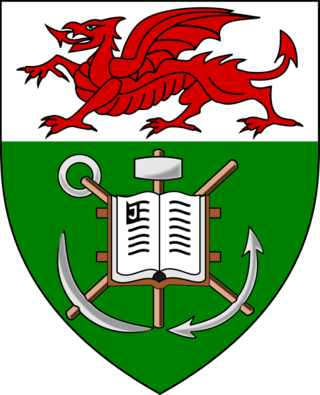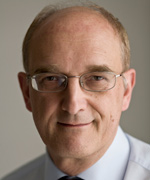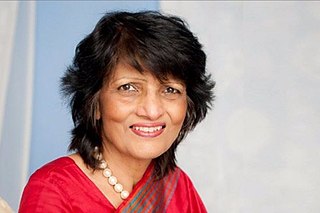Related Research Articles

Swansea University is a public research university located in Swansea,Wales,United Kingdom. It was chartered as University College of Swansea in 1920,as the fourth college of the University of Wales. In 1996,it changed its name to the University of Wales Swansea following structural changes within the University of Wales. The title of Swansea University was formally adopted on 1 September 2007 when the University of Wales became a non-membership confederal institution and the former members became universities in their own right.

The Cardiff University School of Medicine is the medical school of Cardiff University and is located in Cardiff,Wales,UK. Founded in 1893 as part of the University College of South Wales and Monmouthshire,it is the older of the two medical schools in Wales.

Gwyneth Denver Davies,FLSW,known professionally as Gwyneth Lewis,is a Welsh poet,who was the inaugural National Poet of Wales in 2005. She wrote the text that appears over the Wales Millennium Centre.

Sir Leszek Krzysztof Borysiewicz is a British professor,immunologist and scientific administrator. He served as the 345th Vice-Chancellor of the University of Cambridge,his term of office started on 1 October 2010 and ended on 1 October 2017. Borysiewicz also served as chief executive of the Medical Research Council of the UK from 2007-2010 and has held the role of chairman at Cancer Research UK since 2016.

Swansea University Medical School is a medical school on Swansea University's Singleton campus. It is linked to additional teaching centres located throughout South and West Wales,including Cefn Coed Hospital,Singleton Hospital and Morriston Hospital in Swansea,Prince Philip Hospital in Llanelli,Withybush General Hospital in Haverfordwest and Bronglais Hospital in Aberystwyth. The Medical School also has a network of primary care teaching centers.

Biomedical sciences are a set of sciences applying portions of natural science or formal science,or both,to develop knowledge,interventions,or technology that are of use in healthcare or public health. Such disciplines as medical microbiology,clinical virology,clinical epidemiology,genetic epidemiology,and biomedical engineering are medical sciences. In explaining physiological mechanisms operating in pathological processes,however,pathophysiology can be regarded as basic science.
Pamela J. Russell was an Australian academic researcher of immunology,bladder and prostate research. Russell was awarded Membership of the Order of Australia (AM) for her research on prostate and bladder cancer in 2003.
Vanessa Hayes is a geneticist conducting research into cancer genomics and comparative human genomics. She leads a research group at the Garvan Institute of Medical Research in Sydney Australia and holds the Petre Chair of Prostate Cancer Research at the University of Sydney.
Julie Williams is Professor of Neuropsychological Genetics at Cardiff University and was Chief Scientific Adviser for Wales from 2013 to 2017. She is one of the world's leading contributors to Alzheimer's research.

Meena Upadhyaya OBE,FRCPath,FLSW is an Indian-born Welsh medical geneticist and an honorary distinguished professor at Cardiff University. Her research has focused on the genes that cause various genetic disorders,in particular neurofibromatosis type I and facioscapulohumeral muscular dystrophy.
Health Translation Queensland is the first Advanced Health Research Translation Centre in Queensland,Australia. The organisation’s purpose is to strengthen the linkages between healthcare,research and education in order to deliver better health outcomes for the community.
Julian Hopkin CBE is a physician,researcher and medical teacher. In 2004,he became the founding Head of the new Medical School at Swansea University. He is now Professor of Experimental Medicine at Swansea University Medical School and Honorary Physician at the Abertawe-Bro-Morgannwg (ABM) University Hospital. He was appointed a CBE in 2011 for his services to medicine.
Dr. Radhika Nair is an Indian cancer biology researcher. She currently serves as the Ramanujan Faculty Fellow at the Rajiv Gandhi Centre for Biotechnology,in Trivandrum,India,and Senior Research Officer at Garvan Institute of Medical Research in Darlinghurst,Sydney,New South Wales,Australia. She specializes in understanding the cell intrinsic mechanisms that allow tumor cells to survive,go dormant and then thrive,specifically in breast cancer.
Gareth Jenkins is a professor of molecular carcinogenesis at Swansea University Medical School. Based in the Institute of Life Science,his interests include the study of DNA mutation induction and the role of DNA mutations as diagnostic biomarkers for cancer. He is also director of research of the medical school and a “research leader”for Health and Care Research Wales. Jenkins' research gained much recognition during 2016 when his revolutionary cancer-detecting blood test was widely covered in the British press.
Diane Kelly is a Professor of Microbiology,Institute of Life Science,Swansea University Medical School and Fellow of the Learned Society of Wales.
Andrew R. Barron is a British chemist,academic,and entrepreneur. He is the Sêr Cymru Chair of Low Carbon Energy and Environment at Swansea University,and the Charles W. Duncan Jr.-Welch Foundation Chair in Chemistry at Rice University. He is the founder and director of Energy Safety Research Institute (ESRI) at Swansea University,which consolidates the energy research at the University with a focus on environmental impact and future security. At Rice University,he leads a Research Group and has served as Associate Dean for Industry Interactions and Technology Transfer.
Ann John,FLSW is a Professor in Public Health and Psychiatry at the Swansea University Medical School. She chairs the National Advisory Group to Welsh Government on the prevention of suicide and self-harm. She is an honorary consultant in Public Health medicine for Public Health Wales and Trustee of the Mental Health Foundation. In 2019,she was elected as a Fellow of the Learned Society of Wales.
Anita Thapar is a Welsh child psychiatrist who is Professor of Child and Adolescent Psychiatry in the Institute of Psychological Medicine and Clinical Neuroscience at Cardiff University. Her research focuses on risk factors for ADHD and major depression in children. She was elected a fellow of the Royal College of Psychiatrists in 1995,and of the Academy of Medical Sciences and Learned Society of Wales in 2011. In 2017,she received the Frances Hoggan Medal from the Learned Society of Wales and was named a Commander of the Order of the British Empire (CBE),both in recognition of her research in child and adolescent psychiatry.
Rosalind Anne Eeles is a Professor of Oncogenetics at the Institute of Cancer Research and clinician at the Royal Marsden NHS Foundation Trust. She is a leader in the field of genetic susceptibility to prostate cancer,and is known for the discovery of 14 genetic variants involved in prostate cancer predisposition. According to ResearchGate,Eeles has published more than 500 articles in peer-reviewed journals,with over 34,000 citations and an h-index of 92. Eeles was elected a Fellow of the Academy of Medical Science in 2012. She was awarded a National Institute for Health Research Senior Investigator Emeritus in 2014.

Jórunn Erla Eyfjörð is an Icelandic molecular biologist and professor emerita at the Faculty of Medicine of the University of Iceland. She is known for her research on breast cancer genetics.
References
- ↑ "Professor Shareen Doak staff page". Swansea University medical School. Retrieved 18 May 2015.
- ↑ "Mutagenesis journal tribute". academic.oup.com. 1 January 2011. Retrieved 29 December 2017.
- ↑ "Professor Shareen Doak | Expertise Wales". businesswales.gov.wales. Retrieved 30 September 2017.
- ↑ University, Bangor. "Keynote speakers". www.nrn-lcee.ac.uk. Retrieved 30 September 2017.
- ↑ Wales, The Learned Society of. "Shareen Doak". The Learned Society of Wales. Retrieved 29 August 2023.
- ↑ "CALIN – New Life Science Innovation Network for Welsh and Irish businesses launched - Hwb Gwyddorau Bywyd Cymru | Life Sciences Hub Wales". Hwb Gwyddorau Bywyd Cymru | Life Sciences Hub Wales. Retrieved 30 September 2017.
- ↑ "New Network Launched to Assist Irish and Welsh Life Science Businesses Innovate | UKSPA". www.ukspa.org.uk. Retrieved 30 September 2017.
- ↑ "Swansea experts' futuristic role in making next-gen products - cruelty free". swanseabaytimes.com. Retrieved 30 September 2017.